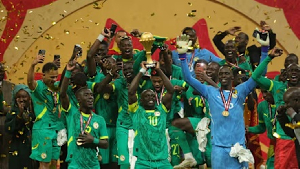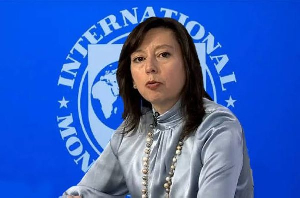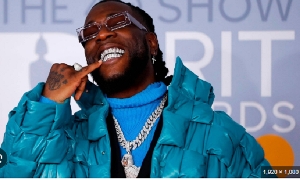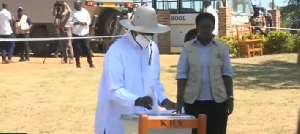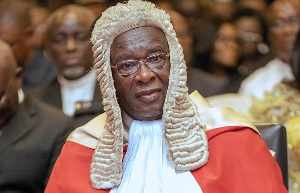PRESENTATION BY ROLAND ACQUAH-STEVEN – HEAD OF CURRENT AFFAIRS AND POLITICAL DESK OF RADIO GOLD AT THE IEA RETREAT FOR SENIOR MEDIA PERSONNEL AND POLITICAL PARTY LEADERS AT CAPITAL VIEW HOTEL , KOFORIDUA – JULY 22, 2011.
“Creativity is dreaming, innovation is waking up to reality.”- Kwaku Atuahene – Gima (China Europe International Business School- CEIBS).
With these words from the African with global recognition in innovation management, let me kindly commend the IEA for its creativity ahead of Ghana’s general election of 2012 by bringing together media personnel and politicians to draw up strategies to reduce political tension and polarization in our country. The desired outcome of this retreat will be it benefits to the people of the Republic of Ghana, participants and morning shows on radio and television as well n as democracy watchers globally. It is at this moment that we can say we have been innovative.
The presentation as required by IEA is that, it is practical, thought provoking and pertinent to Ghana’s democratic development. This is exactly what I will attempt to do.
The topic again is “political commentators at morning shows: do they deepen polarization”, - I will look at it contextually from leadership, business and industry behavior as well as the voice of the customer – (i.e. listener on radio and viewer on television).
Tossing it the other way round, it is to find out the influence of the political commentariat on the Ghanaian public?
This I will with humility leave to the researchers and think tanks – my attempt to comment on it will lack the necessary authority and scientific basis? In the thickets of the influence of Morning show on the good people of this Republic , I believe I am a forester and can safely and confidently hunt with my years of experience as reporter , talk-show presenter and a producer. I deliberately and consciously borrowed thickets” and forester “from the playwright, Robert Bolt in his play “A man for all Seasons when he described the character Thomas Moore as ‘a forester in the thickets of the law.” In journalism and other profession ethics are important. Let all know that the expression is not original with me.
As alluded to, Thomas More represented who he is, regardless of which way the wind blows –or what the season-he is who he is.
A common man is mentioned is this particular play. The impression created is that it is the non-singular majority who opt to “go along to get along “. On the other hand, the common man will be whoever he thinks he needs to be to survive; he goes with the wind.
An assertion is that the common man is all too recognizable in all of us, and in spite of his vacuous survival, he fades into oblivion. The uncommon Moore doesn’t ask to be recognized; but he becomes immortal. This is but a scenario. It is a scenario.
Can this scenario apply to the Political Commentators at the Morning Show? Will it apply to the issue of polarization?
Who are the political commentators at the morning shows? In my view these are the politically active, socially –concerned and highly knowledgeable persons whose views and voices are heard and seen on morning shows on both radio and television. They serve a useful purpose of entrenching our democracy. They are relevant in the breakfast menu of Morning Shows.
The political commentators vary in many respects. Their interests also vary. There is the political commentator whose views represent good governance from a think-thank or academic perspective, there are those who commentaries are purely self –interest based, others whose political commentary is simply to promote particular partisan political interests and there are some who are just ‘mouth –for –hire ‘political commentators. Then, there is the political commentator who is desirous of Ghana’s development. They are nationalistic in outlook, conscientious and forward looking and their commentaries paint the picture of a country with healthy divergent views but united together to see the promised land of a middle income country and beyond. If the latter captures what all political commentators are in this Republic – my bet is that we will not have travelled from Accra to Abotanso in Koforidua to discuss the issue at hand. All these political commentators are not sui generis in the interest game. It is imperative to note that we live in the world governed by interests. The Journalists, Politicians, The IEA and all who are gathered here have their collective and individual interests as well.
It then brings to the fore the question being asked by the IEA, do they deepen polarization. ? The obvious answer is YES and A BIG NO – to the last political commentator I described a while ago.
Political commentators represent different interests of the Ghanaian society with different motives and different expectations. It is an important issue of interest of several other interests that we all here at the Capital View Hotel at a retreat quote “aimed at drawing up strategies to reduce political tension and polarization in the country ahead of election 2012”. Unquote.
In the invitation for participation to this retreat, it boldly articulates the importance of the media as one of the pillars of a dynamic and sustainable democratic system. It avers that a progressive media ‘help to promote good governance by providing well-balanced and productive information to educate the citizen and enable them participate in the governance process of the country. A further observation expressed in the contrary say that a negative media could wreak havoc and anarchy in a society through misinformation and miseducation. It adds that it could lead to civil and political strife and could have grave consequences in the country.
Still on the IEA‘s invitation on the issue of the media is another observation that creates a picture. Quote “they are often accused of contributing to the political tension and polarization we witness in Ghana today. This phenomenon is largely attributed to what has become known as political talk show. Indeed, some media houses continue to use this medium to polarize the nation. Unquote. This observation is certainly sexy. According to the organizers it is desirable that my presentation be practical, thought provoking and pertinent to Ghana’s democratic development. As promised earlier, I will do just that.
The practical questions which come up ab initio to the Institute of Economic Affairs (I.E.A) are -who are those who often accuse the media of contributing to the political tension and polarization? is it true that we are witnessing political tension and polarization in Ghana today? What is the practical manifestation of the political tension and polarization? Who are those that have attributed the political tension and polarization to “political talk shows’? and which specific media houses continue to use these political talk shows to polarize the nation?
I pause for a response to this flurry of questions. It will add up to making the retreat as a whole practical, thought provoking and pertinent to Ghana’s democratic development.
It leads me to the basis I indicated I will use to discuss the topic “Political Commentators at Morning Shows: Do they Deepen Polarization”. Leadership.
Leadership and its demonstration to the Morning Shows and political commentators is one practical and pertinent strategy which can address the issue of polarization. The leadership and management of a radio and TV station can practically influence the quality of decision-making on producing a morning show in its entirety. The mission and vision statements of the radio and television station will determine how to handle all issues and topics with defined objectives. The right leadership will create a climate of ethics that guides every sphere of the morning show and other programs as well. The producer, presenter and the political commentator and other resource persons as well as phone –in guests will collectively work in tandem to achieve the set goal. The leadership will deplore the right mix of skills and talents which form the human capital of the radio and television station to achieve the organization‘s vision of trying to be the best in the industry as well as keeping it listeners and viewers and winning new ones. On the flipside, leadership in the political arena can achieve similar objectives with individual members being led to appreciate the need to transform their political posture and pronouncements to conform to their political party’s desired outlook.
BUSINESS.
Radio and Television stations are businesses. The profit motives and other business interests are paramount. Political commentating is an aspect of business in the global democracy business. In my view it falls within the service industry. Some political commentators do get considerations to champion the cause of various interests in the wider interest of the public interest. Others get the profit not in the form of direct considerations but personal rewards. Some do operate a sort of consultancy for public speaking – because there are some citizens of this Republic who contact them, because they too, want to partake in the Ghanaian public conversation.
To address the question of a political scientist who uses his expert knowledge to comment on Morning shows to subliminally champion a particular interest or a guest on a morning show who knows that a vitriolic attack on an opponent or some noted persons will earn him commendation from political heavyweights and a fantastic applause from his peers , another commentator who is aware that by marshalling cogent reasons to sell a particular viewpoint will create a ground softening for a relation to get the desired contract – we will be practically attempting to depolarize the country and addressing an issue which is pertinent to Ghana’s democratic development .
The need for businesses to thrive is also pertinent to democratic development. How then do we ensure that the emerging service industry of political commentating thrive but not at the expense of polarizing this country? Best practices are what I can hear being said. The how of it is also being asked? In established democracies with well resourced radio and television stations, it is common place to have in-house political commentators whose experiences and knowledge are authoritative and they do the magic. This is done in consonance with others who are experts in related fields and are out-sourced depending on the nature of the issues at stake.
Can we do same here? Yes, we can.
We can look at the prevailing concerns and carefully not allow media houses to spend money they don’t have and also not kill the business of the political commentator by raising the standard of public conversation on politics with moderation and in an engaging, adherent ethic.
INDUSTRY BEHAVIOUR
How does the Morning Shows that have political commentators on them in Ghana behave? The debates on them are intense and heated. The issues are hot, and moderating them are sometimes challenging. The phone –in segment reflect the intensity.
Adrenaline levels are easily determined. This descriptive temperature of Morning Shows in Ghana does not read same all the time.
The temperature varies from the topics, issues and personalities and to some extent the level of moderating the programme. A particular heated encounter between two leading politicians, on a morning show at radio A , over an issue will in a pavlovian( the adjective comes from the experiments of Ivan Petrovich Pavlov , a physiologist 1849 -1936, winner of the Nobel prize 1904) manner recur on many other radio stations on that same morning . It does not take a genius to see the raison d’être for this development – they monitor themselves. With this in mind, a bold and practical attempt to depolarize the effect of the political commentator at the morning show will be beckoned with arms wide opened by the industry.
VOICE OF THE CUSTOMER.
Morning Shows on radio and television broadcast because of their listeners and viewers. These listeners and viewers are numerous and they represent all the strata of the Ghanaian society. The political commentators at the morning shows serve these same targets. The voice of the listeners and viewers of these morning shows are very critical because it makes the radio and television station as organizations develop and improve programs to be able to sustain their businesses , widen their listenership and viewership bases and better satisfy them. We are gathered in the interest of democracy and development, I am a customer to the services of the think-thank, IEA, and so are others here and together with other Ghanaians elsewhere, when our voices are heard and strategies are developed to satisfy our needs for Election 2012, and it is devoid of political tension, then we can say the democracy product developed by the IEA is innovative because it serves it outcome and it is beneficial to our democratic development environment.
Thanks.
General News of Saturday, 13 August 2011
Source: Nartey


